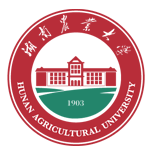作物学综合实践-国家一流本科社会实践课程
<div class=TRS_Editor><div class="TRS_PreAppend" style="overflow-x: hidden; word-break: break-all">
<p align="justify"><font style="font-size: 12pt; line-height: 125%"><strong style="line-height: 125%">1. 课程的建设发展历程</strong></font></p>
<p align="justify"><font style="line-height: 125%"> <font style="font-size: 12pt; line-height: 125%">《作物学综合实践》由官春云院士倡导提出,自1998年在农学专业开始实施,21年来,不断进行实践方式、实践内容与实践条件的改革与完善,已经形成作物学特色化综合实践模式,相关成果于2001年获国家教学成果二等奖,在国内产生了巨大影响。</font></font></p>
<p align="justify"><font style="line-height: 125%"> <font style="font-size: 12pt; line-height: 125%">课程2020年1月被认定为湖南省社会实践省级本科一流课程,2020年12月获批首批国家级本科一流社会实践课程。</font></font></p>
<p align="justify"><font style="font-size: 12pt; line-height: 125%"><strong style="line-height: 125%">2. 课程教学与人才培养目标</strong></font></p>
<p align="justify"><font style="line-height: 125%"> <font style="font-size: 12pt; line-height: 125%">《作物学综合实践》主要涵盖作物学实验技能训练、生产技能训练和科研技能训练以及农技推广、社会调查的理论授课与实践。课程目标在于:</font></font></p>
<p align="justify"><font style="line-height: 125%"> <font style="font-size: 12pt; line-height: 125%">(1)增进学生对农业、农村、农民基本情况的了解,使学生牢固树立“学农、爱农、兴农”的信念;</font></font></p>
<p align="justify"><font style="line-height: 125%"> <font style="font-size: 12pt; line-height: 125%">(2)掌握作物学主要实验技能;</font></font></p>
<p align="justify"><font style="line-height: 125%"> <font style="font-size: 12pt; line-height: 125%">(3)熟悉主要农作物的生长发育规律,掌握作物高产高效栽培技术及操作技能;</font></font></p>
<p align="justify"><font style="line-height: 125%"> <font style="font-size: 12pt; line-height: 125%">(4)培养学生发现问题、分析问题和解决问题的能力;</font></font></p>
<p align="justify"><font style="line-height: 125%"> <font style="font-size: 12pt; line-height: 125%">(5)提高学生科研动手能力,包括田间试验设计能力、试验布置能力、取样与样品处理能力、数据分析能力与总结报告撰写能力;</font></font></p>
<p align="justify"><font style="line-height: 125%"> <font style="font-size: 12pt; line-height: 125%">(6)增强学生的团队意识,提高学生自我约束和管理能力。</font></font></p>
<p align="justify"><font style="line-height: 125%"> <font style="font-size: 12pt; line-height: 125%">《作物学综合实践》的教学改革需要解决的重点问题有:实践内容的与时俱进,实践方式的改革创新,实践条件的不断完善,实践指导老师队伍的优化与能力提升,考核方式的不断优化,实践竞赛体系的构建与完善。</font></font></p>
<p align="justify"><font style="font-size: 12pt; line-height: 125%"><strong style="line-height: 125%">3. 课程内容与资源建设及应用情况</strong></font></p>
<p align="justify"><font style="line-height: 125%"> <font style="font-size: 12pt; line-height: 125%">目前,《作物学综合实践》集中在浏阳教学科研综合基地实施,基地现有耕地500亩(自有产权111.1亩),建成了宿舍、教室、实验室和辅助生活设施;基地安排了一批国家级和省部级科研项目,具有先进的农业现代化生产设备设施,并与周边新农村示范村沙龙村签订了合作协议,实践资源丰富。</font></font></p>
<p align="justify"><font style="font-size: 12pt; line-height: 125%"><strong style="line-height: 125%">4. 课程教学内容及组织实施情况</strong></font></p>
<p align="justify"><font style="line-height: 125%"> <font style="font-size: 12pt; line-height: 125%">每年3-7月统筹安排《作物学综合实践》:边上课、边生产、边科研、边推广、边做社会调查、边做群众工作;同时,构建以实验技能竞赛、生产技能竞赛和科研技能竞赛为核心的作物学技能竞赛体系。</font></font></p>
<p align="justify"><font style="line-height: 125%"> <font style="font-size: 12pt; line-height: 125%">边上课:即理论学习,培养学生知识获取能力。结合田间现场操作,完成相关实践理论学习任务。</font></font></p>
<p align="justify"><font style="line-height: 125%"> <font style="font-size: 12pt; line-height: 125%">边生产:即作物生产实践,培养学生生产组织实践能力,包括主要大田作物生产实践、种子生产实践、蔬菜生产实践。</font></font></p>
<p align="justify"><font style="line-height: 125%"> <font style="font-size: 12pt; line-height: 125%">边科研:即作物学科研实践,培养学生科研实践能力,其一是“作物学科研技能大赛”,以班为单位,自主设计并全程实施田间试验(品比试验、肥料试验、农药试验、灌溉试验等);其二是结合老师课题进行试验研究,并完成本科毕业论文。</font></font></p>
<p align="justify"><font style="line-height: 125%"> <font style="font-size: 12pt; line-height: 125%">边推广:即积极参与新技术推广,培养学生技术推广实践能力,每个学生必须将自己掌握的先进生产技术或基地示范的新品种、先进技术向农民进行推广。</font></font></p>
<p align="justify"><font style="line-height: 125%"> <font style="font-size: 12pt; line-height: 125%">边做社会调查:即对周边农村开展社会调查,培养学生调查研究实践能力,主要调查内容:①农村种植业现状;②农村合作医疗实施情况;③农村专业合作组织现状;④新技术、新品种使用现状;⑤农产品生产标准化的现状;⑥新农村建设现状调查;⑦土地流转现状调查;⑧现代农业及产业化;⑨耕地保护与使用限制调查。除上述内容外,学生还可以根据实习基地周围乡镇的实际情况自行拟订调查内容撰写调查报告。</font></font></p>
<p align="justify"><font style="line-height: 125%"> <font style="font-size: 12pt; line-height: 125%">边做群众工作:即深入农村基层开展群众工作,培养学生群众工作实践能力,包括跟当地村干部学习处理群众纠纷、做群众思想政治工作,参加农村基层组织中心工作、参加政策宣传,助力乡村振兴。</font></font></p>
<p align="justify"><font style="font-size: 12pt; line-height: 125%"><strong style="line-height: 125%">5. 课程成绩评定方式</strong></font></p>
<p align="justify"><font style="line-height: 125%"> <font style="font-size: 12pt; line-height: 125%">总评成绩由综合报告(30%)、科研实践(20%)、调查报告(10%)、实践态度和表现(40%)构成。前三项得分由指导小组评定,第4项得分由班组学生干部和指导小组共同评定。上述4项指标得分的加权值为总评分数,分为优秀( 90-100分)、良好(80-89分)、中等(70-79分)、及格(60-69分)和不及格(60分以下)五个等级。比例控制:优秀等级15%,良好等级35%,中等和及格等级45%,不及格等级5%以下。</font></font></p>
<p align="justify"><font style="font-size: 12pt; line-height: 125%"><strong style="line-height: 125%">6. 课程评价及改革成效</strong></font></p>
<p align="justify"><font style="line-height: 125%"> <font style="font-size: 12pt; line-height: 125%">1998年开始实施,经历了21年的发展和完善,构建了植物生产类专业作物学综合实践特色化训练模式,2001年获国家教学成果二等奖。通过作物学综合实践,使学生的生产技能、实验技能、科研技能、推广技能、群众工作技能和综合素质得到全面提升,毕业生深受用人单位欢迎,进入农业产业化龙头企业工作的学生在杂交稻制种等技术岗位和管理岗位取得了显著业绩;进入硕士研究生阶段学习的学生普遍具有较强的实践能力和创新能力,深得导师和学位点好评;进入行政管理岗位的毕业生普遍具有对“三农”问题的独到见解和较强的工作能力。</font></font></p>
</div></div>






